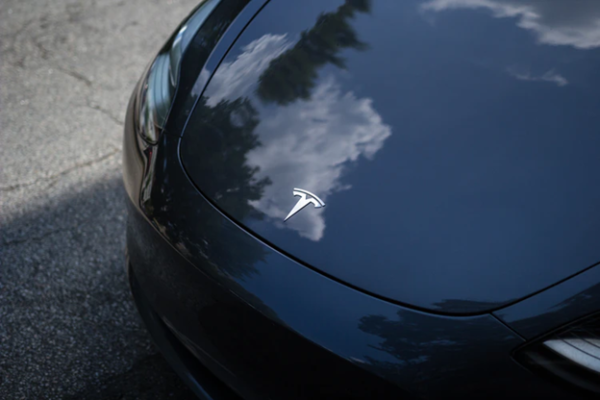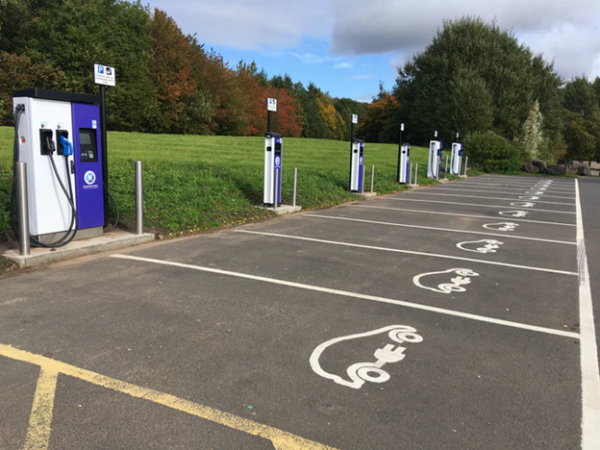
Electric vehicles, known as EVs, are on the rise. Everywhere you go, you will notice an EV parked up, whizzing past you on the highway, or in the shop window. You will also notice more charging stations dotted around. This has been a growing trend now for over a decade. In that time, momentum has but slowly, but it is now recognizable and hard to ignore.
EVs offer many advantages over traditional gas-powered vehicles. They are cheaper, cleaner, faster, and more cost-effective. But there are drawbacks too. EVs need access to electricity, have less range than gas-powered cars, and aren’t as environmentally friendly as the public might believe them to be.
With growing infrastructure for EVs happening all over the country, with the government supporting them with subsidies, and Big brand manufacturers rolling out a more diverse range of vehicles than ever before, we take a look at the pros and cons of EVs versus gas-powered cars. If you haven’t driven an EV before, it is a different experience, and there are a few unexpected things you may have to keep in mind. In this article, we help you decide an EV is right for you.
Funded mainly by government regulations, the electric vehicle (EV) segment is growing on a regular basis in many markets around the world. Most carmakers are developing at least a couple of battery-powered models, and many already have at least one in their portfolio. If you’ve never driven an electric car, let alone owned one, there are a few things to keep in mind before giving up gasoline for good. Here are the pros and cons of living with an EV.
Pro: Cheaper Maintenance
On average electric cars are more expensive to buy than gas-powered cars. For a standard EV such as the popular Nissan Leaf, you will pay between $25-30,000. Quite a bit higher than you would expect for a family saloon vehicle. But the price is justified when you consider the savings you make on running costs alone.
EVs are significantly cheaper to run than gas-powered vehicles. They don’t have mechanical parts, such as flywheels, timing belts, and starter motors. Instead, they have a single battery, usually fitted to the floor. EVs do not need to go for regular mechanical services like gas-powered cars, although the wheels and tires may need regularly checked by a tyre service.
The EV running costs are further reduced by government incentives such as free electricity, meaning you don’t even need to pay for fuel. The biggest expense you will encounter with an EV is a replacement battery, which could set you back four figures. Until that time comes, however, you will have put many carbon-free miles on the clock.
Con: Access to Electricity
One of the main drawbacks for people considering an EV, apart from the battery range, is electricity access. While charming stations have been increasing in recent years to keep up with demand, there is still a significant lack of charging points in convenient locations.
One alternative to public access points is charging at home. This might seem like a viable and straightforward option, but there are further drawbacks. An EV car requires a 220V supply to charge it efficiently, which could mean rewiring your home to accommodate it. A job like this could be worth it if you plan on running EVs, but it may also run into thousands of dollars.
The generation of electricity is also an issue as demand for EVs increases. EVs are commonly marketed as zero emissions, which is true at the tailpipe, but unless the electricity comes from renewable sources, the EV still has a carbon footprint. As the demand for electricity rises, it could affect the EV zero-emissions standard.
Pro: Quick and Quiet
Riding in an EV vehicle is very different from riding in a traditional gas-powered one. For one thing, there is no noise. Even the quietest gas-powered vehicles will have some sound from the engine, but EVs are completely silent. The only sound you will hear from them is the sound of the tyres on the road.

For most people, this constitutes an advantage; however, some vehicle manufacturers, such as Jaguar, have installed artificial engine noises for those not ready to give up a traditional driving experience. But EVs are not only soundless; they are also quick, owing to the lack of gears and incredibly efficient torque.
EVs can quickly go from zero to sixty outperforming most gas-powered vehicles into the same class. This is because of the torque that is immediately available to the wheels. Most models also have brake energy recuperation allowing you to slow down without needing the brake pedal.
Con: Limited by Range
While EVs are nippy and fun to accelerate, it will quickly diminish the battery and force you to stop for a recharge. Furthermore, the general range of an EV is significantly lower than a gas-powered vehicle – this can cause many issues when your planning trips and outings.
You will get to know your EVs power cycles based on how you use the vehicle in terms of the driving range. Most EV offer between 150-250 miles before a charge. If you make many short inner-city journeys, this may actually run the battery down faster due to the constant acceleration. Longer journeys are more sustained and should give you better battery life.
When it comes to leisure activities running an EV may have some drawbacks depending on your outlook. Running a gas-powered vehicle doesn’t require much planning; all you have to do is put your destination in the GPS, and off you go – you can rest assured there will be plenty of chances to fill up: but not with EVs.
Pro: No Gas
EVs are regularly marketed as Zero-Emissions vehicles: they are, and they aren’t. For one thing, EVs don’t have a tailpipe, so there’s no way they can contribute to emissions, at least in the local environment. They do, however, rely on electricity, which comes for a range of sources. If the source is 100% renewable, the car is Zero-emission; if not, it will still carry a carbon footprint.

But there are other benefits of operating an EV. Apart from not requiring a regular gas supply, they also don’t require any engine-related liquids such as oil, anti-freeze, coolant, etc. All of these chemicals are toxic and detrimental to the environment. Some will argue that the EV battery is potentially environmentally harmful. This is a fair comment, especially since EV batteries are made using minerals mined in questionable conditions: the industry, however, are working to solve this.
Con: Indirect Carbon Footprint
As mentioned in the last section, EVs are not as environmentally friendly as they seem. The lack of emissions and marketing on them suggests they are completely carbon neutral, but this is quite far from the reality. In most cases, EVs will rely on ‘dirty energy,’ that is, electricity derived from fossil fuel sources.
At the moment, renewable energy makes up only 20% of the electricity on the grid, meaning that most charging stations are reliant on dirty energy. While you may feel good about charging your car and keeping the air clean, it’s worth remembering that there’s still some way to go before your car is zero emissions.
This situation is not lost on manufacturers who are working to develop more clean energy at charging stations. One company called Envision Solar is testing a charging station that is 100% renewable. It may take some time for them to work out the model and its sustainability, but it’s a positive sign for the future.
Pro: Good to Lease
When thinking about buying a car, you may think you have only two options. You could buy the less expensive gas-powered vehicle and accept the higher running costs, or you could pay more upfront for an EV but benefit from the cheaper or near zero running costs and government subsidies. But there’s a third option: leasing your vehicle.
There are many advantages to leasing your vehicle in general. For a flat monthly fee, usually far less than the cost of vehicle finance, you can run the vehicle as if it is your own. The advantage of this is a reduction in running costs and the security of always having a working car available.
Leasing an EV allows you to go-electric without a huge finance agreement to pay for the upfront cost. With an EV lease, you will have an all-electric vehicle for less than you would pay on even a gas-powered finance agreement. You will further benefit from zero appreciation with a leading option.
Con: Limited Selection
The market for EVs has been continuing to grow since the 2010s when they first started to become a viable alternative. The environmental movement had also played a part, increasing the public appetite for conscious consumerism. Despite the demand, there have been some clear obstacles, not least the lack of charging infrastructure and limited vehicle range. All of this has contributed to a limited range of EVs produced by the manufacturers.
To ensure the cars are sold, manufacturers have been prudent with their models, only producing ones likely to be sold. These were mainly made up of single EVs good for short commutes and inner-city driving. As of 2020, however, the growing market demand for a better range of EVs is clear, as is the better charging infrastructure availability. Now, manufacturers like Tesla are designing crossovers, SUVs, and Pickups, all electrically powered.



